On novels and place
If this blog’s been looking a bit neglected lately, it’s because I’ve been frantically trying to knock over a first draft of my new novel. I had been hoping to have a draft done by the time our second child is born in November, and while I suspect that goal has now slipped away from me, I’m at least halfway there, so I think there’s a good chance I’ll have something by Christmas.
Writing first drafts is always a weird process. A lot of writers are planners, but I’m not, or not particularly. I’ve usually got a rough idea of the shape of the book, and at least a few key scenes, but I usually don’t have a terribly clear sense of how those pieces stick together, or what order they happen in. So mostly what I’m doing when I write first drafts is looking for the rhythm, and the energy. Sometimes that can be exhilarating, but mostly it’s a matter of feeling my way forward, looking for the moments when the thing chimes into life.
I’m still not quite sure what I think of this one (which is currently called Black Friday, though that may change). If you’d asked me a few weeks ago I would have said I wasn’t sure if it would work, but in the last fortnight or so I’ve become a lot more confident it will. Partly that’s because I’ve slid past the halfway mark, but mostly it’s because I can feel the characters beginning to live, and breathe, and the narrative beginning to develop the forward energy it needs.
That’s not to say all’s right with it. I’ve got a point of view problem that won’t go away, and the plotting of the section I’ve just finished is a shambles. And it’s precisely the sort of dark, disordered book I promised myself I wouldn’t write after the experience of writing The Resurrectionist. And my central character is pretty spectacularly unpleasant (as is the subject matter), but she also feels scarily real to me, which has to be a good thing.
What’s been strangest though, has been the manner in which the setting of the book has come bubbling out of me. Although it begins in the present day, the bulk of the action tales place in the early 1980s, and focuses on the actions of a small group of political radicals who decide to kill the Prime Minister. These characters come from a variety of backgrounds, but one of them – the central character – grew up in Adelaide, and there’s an extended sequence near the beginning depicting her absorption into the alternative demi-monde of the time in the backlots of Glenelg.
Although the scenes in question take place in 1980, and I didn’t finish school until 1984, the world this section takes place in is absolutely one I remember. The characters go to school at the school I went to (though it’s not named) and though they live a couple of suburbs further north along the coast, most of the action takes place in Glenelg, where I grew up (I’ve actually based the share-house she becomes entangled in on the house an old friend’s mother bought not long after we finished school).
In a way it’s unsurprising that the book has such a definite location. All three of the novels I’ve published so far are powerfully anchored in the places they’re set. Given that two of them – The Resurrectionist and The Deep Field – are set in places which don’t actually exist (the London of the 1820s and the Sydney of the future, respectively) that might seem an odd thing to say, but it’s true. Whenever I write about a place I need to feel I have a connection with it in an emotional sense, and to feel it’s an integral part of the larger symbolic and textural landscape of the novel. And so while the places they describe may not be real, in a literal sense, they need to be real to me, and to resonate with the book as a whole.
The curious thing is that I never had any desire to write about Adelaide. I left the best part of 20 years ago, and though when I visit it still seems almost overwhelmingly familiar, it’s been a long, long time since it felt like home. And although the South Australian landscape I grew up in has found its way into my work from time to time (the sandhills on the southern coast of New South Wales in which much of the action of Wrack takes place are imaginary versions of the Coorong, and the sandhills at West Beach, rather than anywhere you’d find on a map) I’ve not just not written about the place I grew up in, but actively not wanted to write about it.
In a way, of course, all I’m saying here is something I think any writer, and most readers understand, at least intuitively, which is that place, or location in fiction is never physical, or at least not in any simple sense. Place is always really a psychological space, a thing evoked through the layering of detail, and emotion. And like the strange, almost mystical capacity of characters to be conjured into life by a few words of dialogue or description (not for nothing, I think, do Christians understand God’s Word as a living thing; language has a primal and often quite unsettling power to take on life of its own) places are brought to life by the suggestion of great strata of meaning layered beneath the details we use to evoke them.
I’m not sure precisely what led me back to Adelaide, and the world I knew as an adolescent. What I do know is that it’s a process that began when I was struggling to finish The Resurrectionist. One of the inspirations for that book was the Snowtown murders, and having heard me talk about them, and about Adelaide and its history of serial murder more generally, my agent, David Miller, convinced me I should write about them, and about what seemed to me the very particular experience of growing up in Adelaide in the 1980s.
I still think the piece that came out of that conversation, ‘The Element of Need’, is one of the better things I’ve written in recent years. For contractual reasons there was a lag between me writing it and it being published, but a version was published in Heat last year (you can read a brief extract on the Giramondo website) and it’s recently been picked up for inclusion in Best Australian Essays 2009.
But good or not, writing the piece seemed to unlock something inside me. For a time I toyed with expanding it into a full length book, but for various reasons to do with my reluctance to spend too long in the headspace it inhabits that didn’t happen (though it still might). But alongside the book I didn’t write I found myself playing around with stories and novels which used the landscapes of my childhood and adolescence in quite direct ways. And although few, if any, of these are ever likely to find their way into print, the thing I kept running up against was the manner in which the landscapes they inhabit are so vivid and so particular.
I always think it’s dangerous to assume you know why you find yourself writing about particular things (and I’m painfully aware that even when you think you do know you’re often wrong, and the real reasons are hidden from you). But I do wonder whether this process of moving back, into the past, isn’t at least partly to do with growing older. My father is 76, and he routinely says his childhood, which he once barely remembered, is now almost frighteningly vivid. And while he’s got three and a half decades on me, the last few years have been pretty tumultuous. I’ve turned 40, become a father, felt the always unstable cycle of my moods spin frighteningly out of control, felt the only thing I ever wanted to do – writing – leave me, and then, tentatively at first, but then with greater certainty, return, all experiences which have left me painfully aware of the fragility of life, and of our vulnerability to its vicissitudes.
Yet at the same time the spaces I’m exploring are not simply memory. Despite various disruptions I had a pretty happy childhood. But the landscapes of the writing that draws on it are alienated and often downright creepy, populated by people with important parts of themselves missing. This is partly to do with my sense that there is something haunted and even sinister about Adelaide, some sense in which the outward peacefulness and order disguises something cruel and brutal. But I’m also aware that this view is itself coloured by my own fairly uncomfortable relationship with the place, and the person I was when I lived there.
I’m not sure this is terribly surprising. Like a lot of people who have left places I’ve allowed Adelaide to stand in for my past, and going back is always a pretty uncomfortable experience. But it’s also a reminder of the way fiction takes elements of our inner lives and gives them shape. For the Adelaide (and more particularly the Glenelg) I’m writing about in my new book isn’t a real one, in any literal sense, but an expression of whatever it is in me that has drawn me back there. I’m not going to try and unpack that part of me here – that’s what the novel’s for – but it is a reminder of the dangers of assuming fiction is, in ever, in any narrow sense, autobiographical, and simultaneously an illustration of Faulkner’s dictum: “The past is not dead. It is not even past”.
Break text






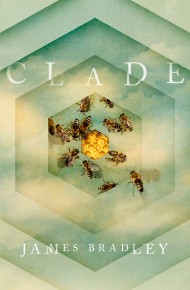

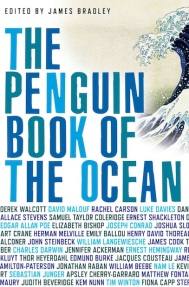
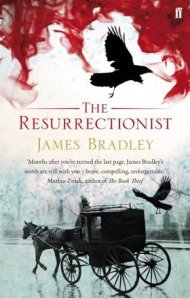
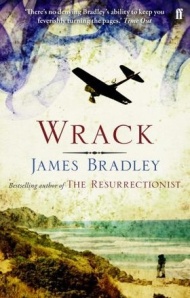
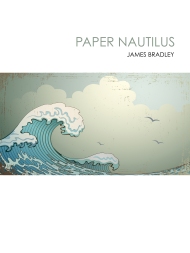
what a lovely piece this is too. Another candidate for Best Essays I reckon!
Yes, a great post. I’ve been thinking about these issues alot. I find Melbourne very difficult to write about but now, finally, I want to try and write about it. I have never quite understood why the landscapes most familiar to me are the hardest ones to capture in words.
Sophie, I wonder what it is about familiar full stop that is hard to capture…
I’m pleased for you that you’re over half way there, it’s always a relief for me, the sense that there’s enough of a world created that it will, perhaps, eventually be strong enough to withstand being looked at by someone else.
I’ve been asked recently to give a workshop on how novels are structured and I’ve come up with some fairly articulate ideas about, if not their architecture, at least how they come into being, growing from one or two ideas into a whole independent world. The only trouble is, when faced with doing it again myself, none of this knowledge is particularly helpful, there’s still this incredible resistance to put myself on the line, to going to places where I don’t know the answer and don’t know if what I’ve come up with is any good.
Sorry about the slow response – I’ve been flat out (and sick, boringly) so I’m a little behind. But needless to say I’m really flattered you all like the piece.
It is interesting though, the way the places we know best are the most difficult to write about. Indeed I often find Sydney, where I now live, as difficult to write about as Adelaide (and interestingly, the only time I’ve ever felt really at home writing about it is in a partially completed novel set in the 1990s, and which is very much about the lost world of that moment).
I wonder whether the difficulty has something to do with the need of fiction to condense reality, and the sense that the inhabited place and moment are too diffuse and unresolved to allow that process to take place. I’m not sure this is quite the same thing as the notion Roth and others have floated about the larger challenge the novel faces in trying to capture the sheer multiplicity of the contemporary world, and what they see as its consequent retreat into the historical. Rather I think it’s to do with the processes whereby experience is synthesized into fiction, and the need for it to be filtered and condensed through the writers’ mind. People often point to writers such as Dickens and George Eliot as exemplars of the novel as a form deeply engaged with its historical moment, but even these writers weren’t usually writing about their actual historical moment, but about a point in the recent past. Dickens’ London was a London that had already vanished by the time he was writing about it; Oliver Twist is set in the London of his childhood, later novels in the London of his early career, but in both cases it was a remembered city he was conjuring back into being (which is also an interesting riposte to the suggestion that the late C19 was the last moment in which the world was on a scale capable of being comprehended in a single work).
Visiting Adelaide in the late ’80s, my partner insisted it was like one of those creepy New England towns that Stephen King writes about. He’d never been there before: my ranting had always been about its narrowness, airlessness, and cripple-making qualities. But the partner has a nose for the weird and the suppressed, and an eye for the blood on the footpath that no one else seems to see.
James- very pleased to see that the novel is taking shape and intrigued about the subject matter- I hope it does come together for you over the coming months and look forward to reading it.